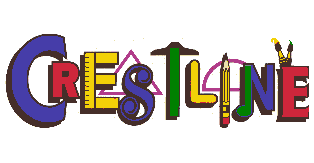-
Characteristics of Gifted Children and Talented Children and Possible Associated Problems
Characteristics
Gifted and talented children may:Possible Associated Problems
Gifted and talented children may:
- learn quickly and easily
- have the ability to abstract and reason critically
- see relationships between ideas and events
- become bored and frustrated
- dislike repetition and shallow curriculum
- hide abilities to gain acceptance
- receive negative adult attitudes to smartness
- exhibit verbal proficiency
- dominate discussion
- have difficulty with listening skills
- exhibit manipulative behavior
- have a high energy level
- need less sleep
- become frustrated with inactivity, lack of challenge or active inquiry
- exhibit heightened curiosity
- take on too many activities
- be extremely persistent
- concentrate on tasks of high interest for extended periods
- disrupt class routine
- feel stifled by restrictions
- resist interruption or schedules
- be perceived as stubborn, uncooperative
- exhibit different learning styles
- be accelerated: desire mastery, achievement
- be enriched: desire depth of knowledge, the need to experience, emotional investment in subject imagination
- become frustrated with absence of progress
- be prone to being 'overdriven' and/or not be motivated by results
- be resistant to interruption
- be seen as time wasting or preoccupied
- exhibit unusual emotional depth and intensity
- be unusually vulnerable
- feel confused if thoughts and feelings not taken seriously
- be highly sensitive be acutely perceptive
- be perceived as immature try to mask feelings to conform be vulnerable to criticism
- be concerned with adult/moral issues
- be idealistic
- attempt unrealistic reforms
- feel frustrated, angry.
- become depressed or develop a cynical attitude
- receive intolerance from age peers
- aim at perfection
- set unrealistically high goals
- feel inadequate
- feel frustrated with others
- fear failure, inhibiting attempts in new areas
- exhibit independence, nonconformity
- have a tendency to challenge and question indiscreetly
- have difficulty with rigid conformity,
- may be penalized
- exhibit rebellious behavior
- have heightened self awareness, feelings of being different
- experience social isolation
- regard difference as bad or worthless, resulting in low self esteem
- have a keen sense of humor
- use humor inappropriately or to attack others
- feel confused when humor not understood
- feel rejected by others
- possess unusual imagination
- be seen as weird
- feel stifled by lack of creative opportunities
- respond and relate to older children and adults
- experience social isolation
- be seen as show off, odd, superior, critical
- be rejected by older children
(Adapted from publications by Clark, Colangelo, Dalton and Whitmore,by Marion Mackenzie for QAGTC inc.)
Menu
Crestline
Elementary
"Providing an effective, challenging, and engaging education for every one of our students"
- Home
- About Us
-
Academics
- "
-
Classrooms
- "
- Community
-
Resources
- "
- Surveys
-
Directory
- "
- 5th Math
- Academic Support
- Anderson Amy
- Anson Lauren
- Art
- Baker Sally
- Barringer Tracey
- Bierbrauer Kendra
- Black Greer
- Black Sarah
- Blackmon Joy
- Blanton Kimi
- Butler Laura
- Cain Erin
- Carlisle Cindy
- CES Elementary Band
- Crawl Melissa
- Davis Allison
- Dern Amy
- Dorsten Stacy
- Enrichment
- Falconer Melanie
- Garner Bill
- Gorham Cameron
- Grainger Matt
- Green, Marlyss
- Guidance & Counseling
- Gwaltney Elizabeth
- Hennessy Melanie
- Henry, Denise
- Holder Debbie
- Hollans Lawson
- Hood Cayla
- Howe Melinda
- Howell Teresa
- Hudgins Shera
- Jackson Akasha
- Johnson Amanda
- Jones, Stephanie
- Kiser Lauren (Reading Coach)
- Lampkin Claire
- LeDoux Bradley
- Library Media Center
- Lilley Amanda
- Manley Kelsey
- Mauldin Chrissy
- McKerley Scott
- Menke Caroline
- Mitchell Kelly
- Moore Ruth
- Morgan Carly
- Music
- Nelson Janet
- Nesmith Alison
- Noles Johnna
- Nurse
- O'Neill Bradley
- O'Neill Kelby
- Phillips Heather
- Physical Education
- Pigg, Rebecca
- Preston Jennifer
- Price Louise
- Relfe Susan
- Rives Laura
- Scott Karen
- Snow Kate
- Spanish
- Special Education
- Spurlock Olivia
- Stanbridge Paula
- Studinka Elizabeth
- Summerrow Chelsey
- Tatarek Paige
- Technology
- Thomas Claire
- Trucks Lindsay
- Underwood Jamie
- Vickery Morgan
- STEM
- Dillard Carrie Ann
- Seitz Kristin
- King Carley
- Rodriguez Jackie
- Claire Thomas BWF pages
- Haley Kay
-
Technology Assist
- "
- Calendar
Enrichment
Page Navigation
Crestline Elementary
3785 West Jackson Boulevard
Mountain Brook, AL 35213
Phone | 205-871-8126
Fax | 205-877-8324


